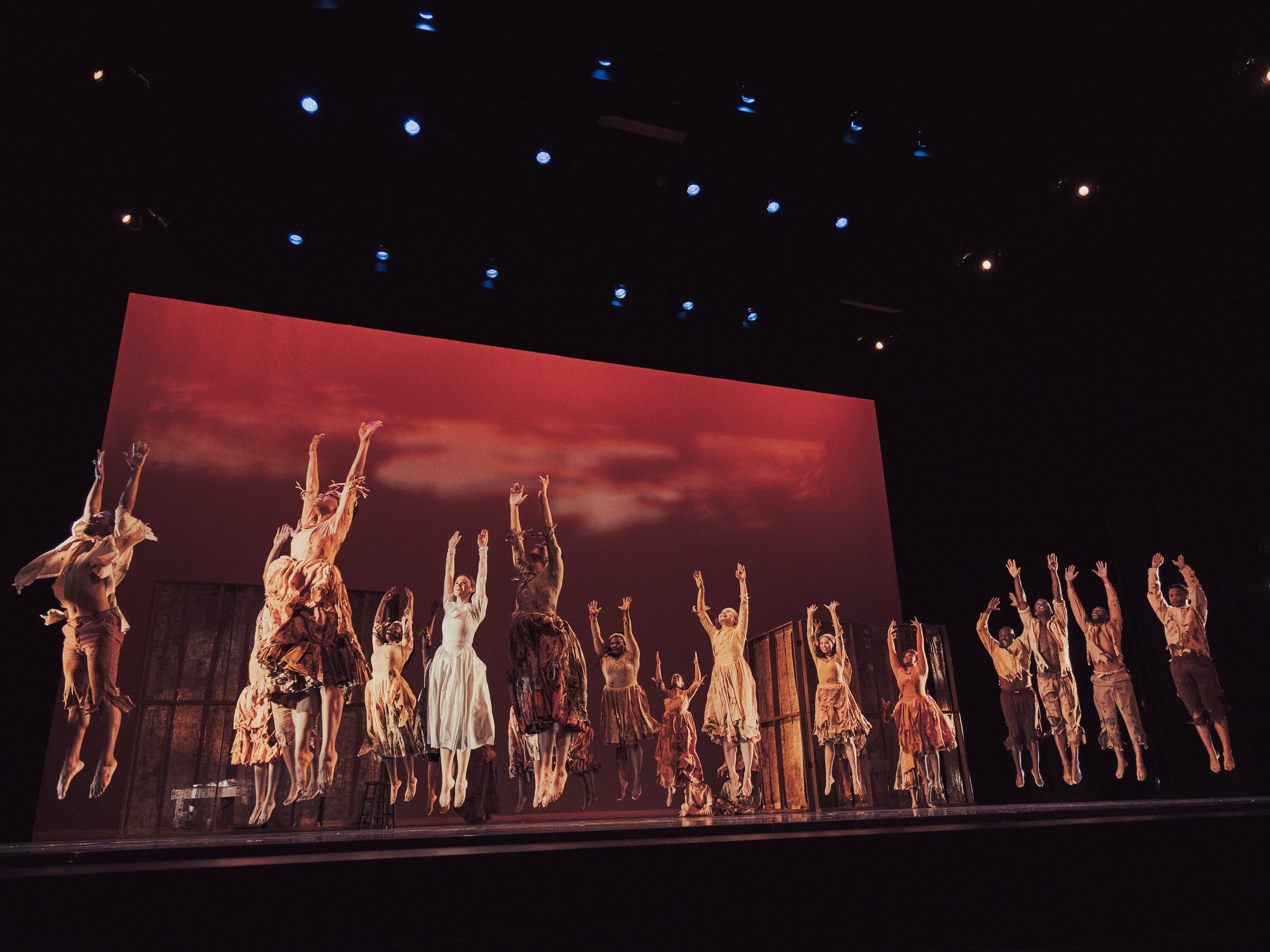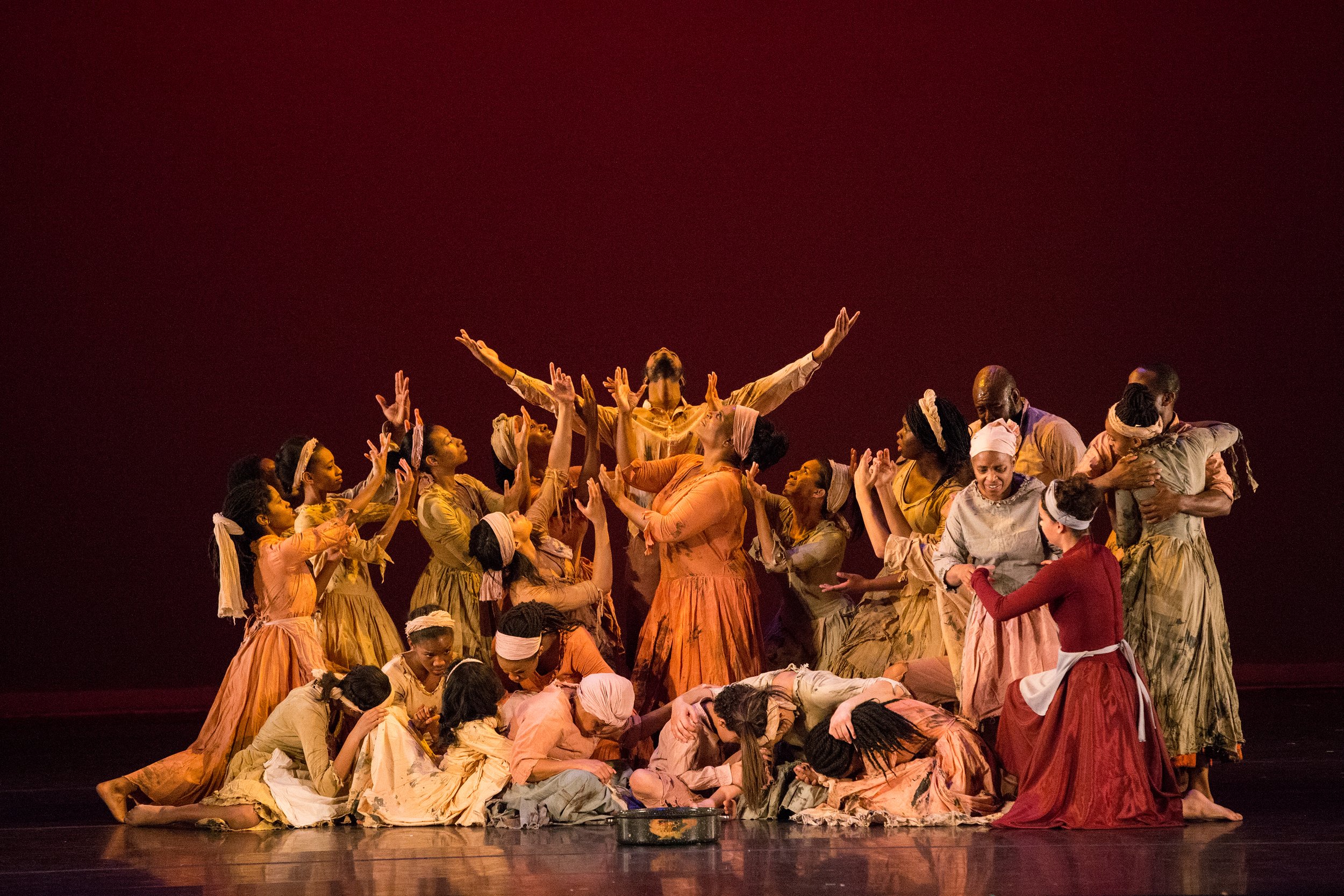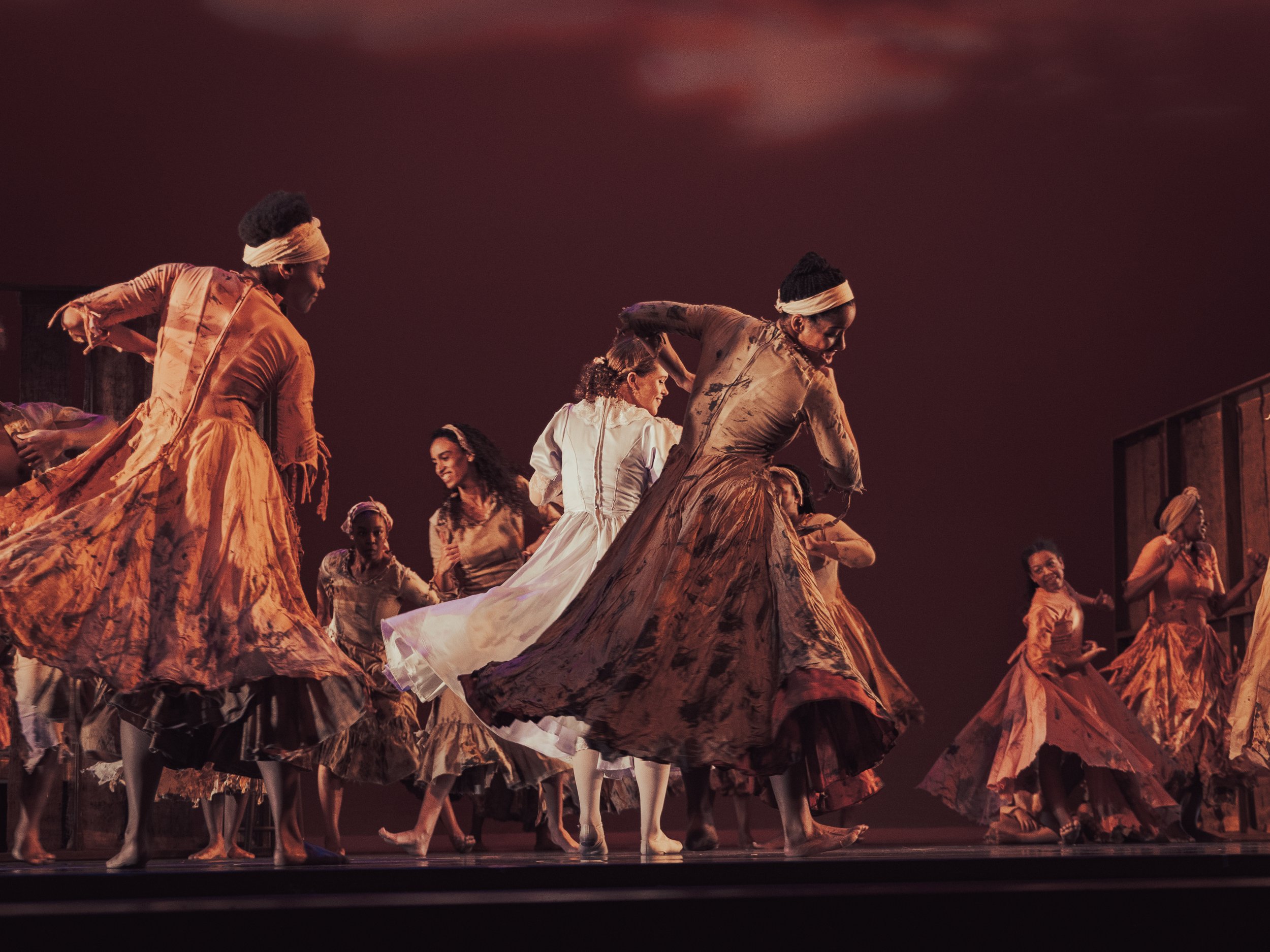‘Underground’ Ballet Promotes Equality and Justice With A Dose Of Faith
Photo courtesy of Jeremiah Enna
“Underground,” the Kansas City ballet that retells the story of slaves escaping to freedom through the Underground Railroad, is a story of White and Black people coming together to work toward justice and equality.
The show, which first premiered in 2008 at the Störling Dance Theater, is a beautiful ballet with a strong mission — something this shared sentiment can attest to. With performances this week, “Underground” celebrates its 17th year on stage. After nearly two decades, it has a dedicated following, a growing influence and a legacy that extends far beyond the stage.
“We call it our ‘Nutcracker,’” said Jeremiah Enna, co-founder of Störling Dance Theater.
READ: PBS Documentary 'The Black Church' Paints Unique And Spiritual History Through Gospel Music
The show primarily follows three slaves on the Underground Railroad from the plantation to freedom, assisted along the way by members of the Quaker community.
“It’s showing both Black and White people working together to make a change,” said Mona Störling-Enna, who founded Störling Dance Theater with Jeremiah and serves as the show’s artistic director.
The conception of “Underground” began as Jeremiah and Mona were dismayed by the growing racial tension evident in the lead-up to the 2000 presidential election. They wanted to produce a show that would make people aware of prejudice and encourage the healing of racial divides. They both embarked on extensive research regarding the history of the Underground Railroad. As a result of this work, Mona created the show with Black co-choreographer Tobin James.
“I'm getting to tell a story that really could have been my ancestors’ story,” said lead dancer Shannon Benton.
“Underground” is a large-scale production, both elaborate and theatrical. It features a large company, multiple different sets, an original score and stunning handmade costumes. The choreography ranges from reflective solos to complex ensemble numbers. The mood shifts effortlessly between joyous and tragic, sometimes in merely a beat of the story. It’s moving and well-performed; it’s no surprise people have kept coming back for the past 17 years.
‘Quality work with a meaningful message’
Jeremiah and Mona founded the theater and its parent organization, Culture House, in 1996. From the start, their goal was to influence Kansas City in a meaningful way.
“It was really important for us that Störling would not be a dance company that only performed to churches, or at Christian events, but it would be able to produce quality work with a meaningful message,” Mona said.
Community was another fundamental aspect of Culture House’s beginnings. One of their first partnerships was with Judi Jones — affectionately known as “Mama Jones” — the founding director of Kansas Academy of Theatrical Arts.
Jones has an extensive theater background and was asked to join “Underground” from the start. She remains part of the show to this day, and has written and illustrated a storybook to color that accompanies performances of “Underground” in schools and helps put the show in the context of the Civil War.
“Our partnership with Culture House has given the students in my neighborhood access to professional training that we didn’t have before,” Jones said. “There’s a young man who came through my company, and then came through Culture House and Underground, and now he has started his own theater company in New York City.”
Photo courtesy of Jeremiah Enna
Uniting Kansas City and churches
The newest and most notable community outreach program associated with “Underground” is Unite KC, a nonprofit organization with the goal of connecting people and building genuine relationships within a diverse community. While it was something they founders dreamed of for a while, the murder of George Floyd in 2020, and resulting nationwide protests, solidified the organization as a necessary one.
Executive Director Ray Jarrett said his deep connection with the work of Störling and “Underground” came naturally, particularly because his wife Lorna was also an original member of the company.
“I've gotten to the point now where I know a lot of the dance moves myself,” he said.
At the beginning of their relationship, Jarrett said he and Jeremiah had “exhaustive conversations about race, the church, community and how all of that fits together — and things that we would love to see happen.”
After several years, they realized what the audience lacked.
“People would go see the show, and then they’d go, ‘OK, I'm all fired up now. I want to do something,’” Jarrett added. “But there was really nothing to carry them from one year to the next.”
The first step was to connect people with information, starting with an event called Second Saturday that happens the week after “Underground” performances. The meeting gives people an opportunity to socialize with community members and get plugged into one of 10 “verticals” of change.
“Let’s say that you've been in the arts for your whole life,” Jarrett said. “You know some of the challenges that people of color have had in those areas, so you can actively join in with people to help right wrongs and create opportunities.”
Unite KC’s most notable initiative to date is the Pastor Partner Program, which matches a predominantly Black church with a predominantly White church in the area. It currently has 13 partnerships and is aiming for a goal of 25. It isn’t an effort that requires shutting down one congregation, but rather involves blending social calendars and approaching relationships with intentionality.
“You don’t have to stand on a corner with a sign saying ‘I want White friends’ or ‘I want Black friends,’” Jarrett said. “Getting involved is as easy as just having a conversation and getting to know somebody that looks different than you.”
The future of ‘Underground’
Solidly established in Kansas City, Störling Dance Theater is eager to grow its show even further. Its biggest goals are to build its own theater, which would offer more freedom to perform more shows year-round, and to plant “Underground” in cities across the country.
This year, Grammy-winning Israel Houghton will perform a guest concert, and Jeremiah said he has plans to involve more guests in the coming years.
For now, it has to be said that what “Underground” has achieved as both a ballet and a method of reconciliation is impressive.
“In our culture now, anything that lasts over a year says ‘this is important,’” Jones said. “To be in the 17th year is a God thing. It’s a divine legacy.”
“Underground” will hold performances on Feb. 1-2 at the Kaufman Center for the Performing Arts in Kansas City. Find tickets here.
Jillian Cheney is Religion Unplugged’s senior culture correspondent. She writes about film, TV, music, art, books and more. Find her on Twitter @_jilliancheney.





